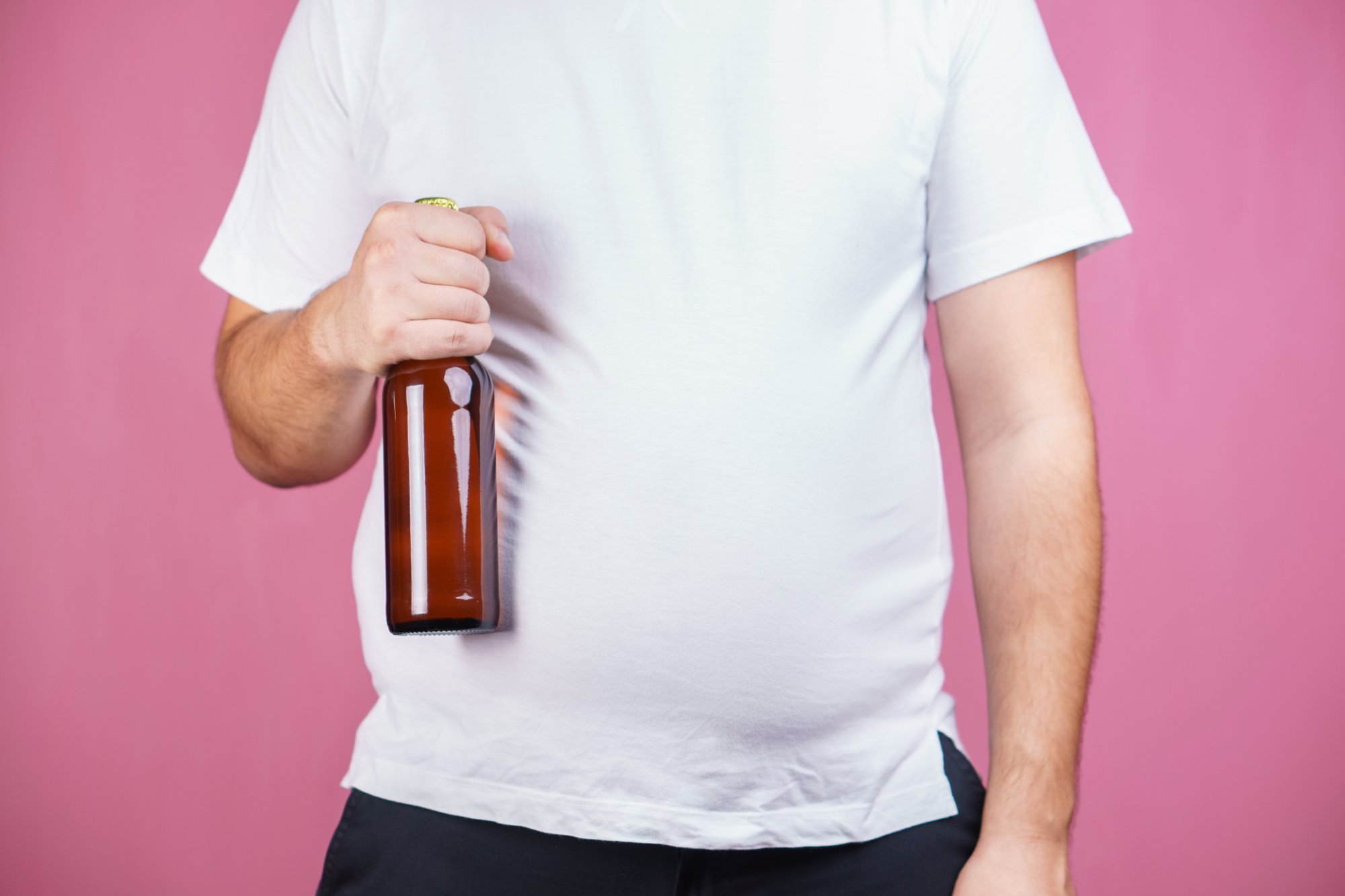
Is the beer belly really a result of drinking beer?
Everyone knows the proverbial beer belly. But does beer really make you fatter than other alcoholic drinks? In principle, beer contains fewer calories than wine or brandy, for example.
But how much does alcohol consumption affect weight gain? Everyone knows that sugar and fat cause obesity and it is important to avoid them if you want to keep an eye on your weight. One gram of sugar contains four kilocalories and one gram of fat contains nine kilocalories. Alcohol contains seven – considerably more than sugar. Few people however are aware of this when they drink alcohol. Another weight trap: alcohol hinders the breakdown of fat in the body, so that calories already ingested cannot be utilised as quickly.
For comparison:
- 0.5 l beer – 200 to 300 kcal
- 0,5 l red wine – 425 kcal
- 1 small glass of red wine (100 ml) – 85 kcal
- 1 small glass of white wine (100 ml) – 75 kcal
- 1 glass of brandy (20 ml) – 45 kcal
But where does the beer belly come from then? Beer does not cause a faster or increased weight gain compared to other alcoholic drinks. Because it however contains relatively little alcohol compared to wine or spirits, it is consumed more often and in higher quantities, e.g. with food or as a thirst quencher. Weight gain is inevitable if you drink beer regularly and do not get enough exercise – in addition to the other harmful effects of alcohol.






